ZADAR View from the bell tower #croatia
Zadar is a historic city located on the Adriatic Sea in Croatia. It is the largest city in the northern part of Dalmatia and serves as the administrative center of Zadar County. With a rich history that dates back to ancient times, Zadar is known for its cultural heritage, stunning architecture, and beautiful coastal setting. Here are some key aspects of Zadar:
History: Zadar has a long and diverse history, with evidence of settlements dating back to the prehistoric period. It was a significant Roman colony known as "Iader" and later became a Byzantine stronghold. Throughout the centuries, Zadar was ruled by various powers, including the Venetians, Ottoman Turks, and Austrians. It was part of the Venetian Republic for several centuries and has been a part of Croatia since the country's independence in the 1990s.
Architecture and Landmarks:
Old Town: Zadar's Old Town is a maze of narrow streets and historic buildings that showcase various architectural styles, including Roman, Byzantine, Venetian, and more.
Roman Forum: The well-preserved Roman Forum is a central square that dates back to the 1st century AD and was the heart of the ancient city.
St. Donatus' Church: This pre-Romanesque church from the 9th century is one of Zadar's most iconic landmarks, known for its circular design and historical significance.
St. Anastasia's Cathedral: A massive Romanesque cathedral with a stunning bell tower, St. Anastasia's is one of the largest cathedrals in Dalmatia.
Sea Organ: This unique architectural installation uses the motion of the waves to create musical sounds, providing a soothing and captivating experience for visitors.
Greeting to the Sun: Adjacent to the Sea Organ, this circular installation consists of solar panels that light up in various patterns at night, creating a visually appealing display.
Cultural Heritage: Zadar has a vibrant cultural scene with numerous museums, galleries, and festivals. The Museum of Ancient Glass is particularly notable, showcasing a collection of ancient glass artifacts.
Natural Beauty: Zadar's location along the Adriatic Sea makes it a popular destination for beachgoers and water enthusiasts. The coastline is adorned with crystal-clear waters, pebble beaches, and small islands that are easily accessible by ferry.
Culinary Scene: The city's coastal location influences its cuisine, which features a variety of seafood dishes. Traditional Dalmatian cuisine, including dishes like "pašticada" (marinated beef stew) and "peka" (slow-cooked meat and vegetables), can be enjoyed in local restaurants.
Transportation: Zadar has an international airport that connects the city to various European destinations. Additionally, it is well-connected by road to other parts of Croatia and neighboring countries.
Zadar's combination of historical significance, architectural beauty, and coastal charm make it a captivating destination for travelers looking to explore Croatia's Adriatic coastline and immerse themselves in its rich history.
-
 0:08
0:08
Travelling Tourist
8 months agoZadar Sunsets #zadar #touristplace #travel #touristattraction #croatia #sunset
18 -
 0:09
0:09
Travelling Tourist
8 months agoDanger all over Zadar, Croatia | Dangerous City! Watch out when you visit
27 -
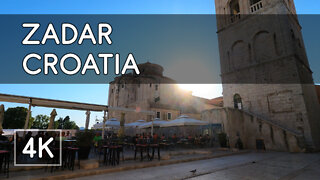 1:35:22
1:35:22
Moving Forward - Walking and Relaxation
2 years agoWalking Tour: Zadar, Croatia - 4K UHD
691 -
 0:15
0:15
Visit Croatia
1 year agoZadar - Croatia
47 -
 24:10
24:10
Moving Forward - Walking and Relaxation
2 years agoSun Salutation and Sea Organ Installations - Sunset in Zadar, Croatia - 4K UHD
86 -
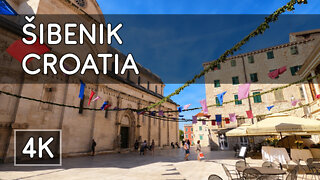 1:19:17
1:19:17
Moving Forward - Walking and Relaxation
2 years agoWalking Tour: Šibenik, Croatia - 4K UHD
37 -
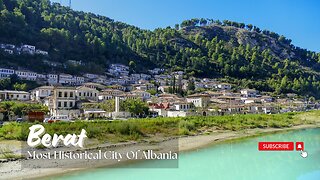 2:15
2:15
rehan89
8 months agoBerat Most Historical and Tourist Visiting City of Albania
53 -
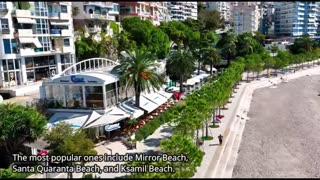 4:03
4:03
Tourist Era
8 months agoExplore The Beauty Of Sarande City of Albania
8 -
 2:10
2:10
Tourist Era
8 months agoGjirokaster is the city of Valley & The Most Beautiful City of Albania
9 -
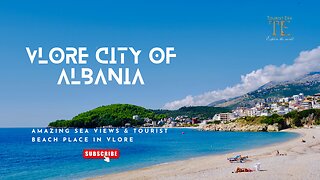 3:32
3:32
Tourist Era
8 months agoAmazing Sea View & Tourist Beach Places in Vlore City of Albania
39